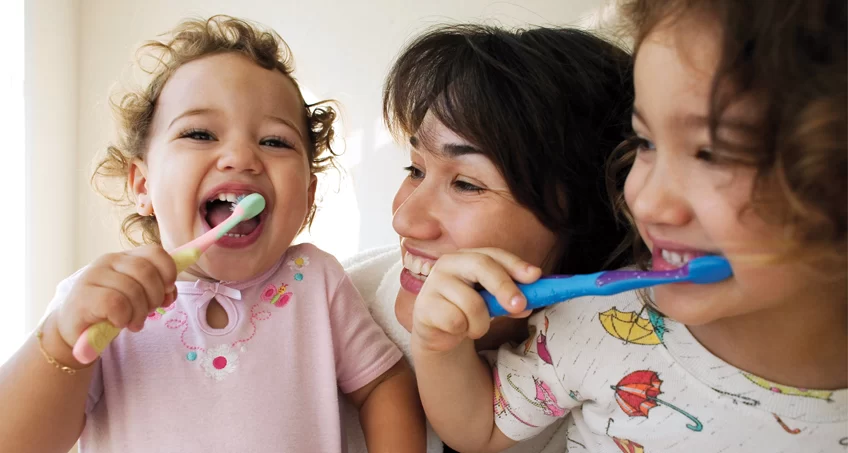
Best Practices for Preventing Tooth Disease in Toddlers: A Guide for Parents
- 1. Importance of Oral Health for Toddlers
- 2. Building Good Oral Hygiene Habits Early
- 3. The Role of Diet and Nutrition in Preventing Tooth Disease
- 4. When to Schedule Your Toddler's First Dental Visit
- 5. Real-Life Example: How Parents Prevented Tooth Disease
1. Importance of Oral Health for Toddlers
Oral health is vital for toddlers, as it impacts their overall health, speech development, and ability to eat comfortably. Starting early with good dental practices can prevent future tooth diseases such as cavities, gum disease, and more. In fact, maintaining oral hygiene from a young age is crucial for preventing serious issues in the future, including those that may require painful treatments like root canals.
Parents are the first line of defense when it comes to ensuring their child’s oral health, and it’s never too early to start. By implementing preventive care at home and taking the necessary steps to protect those little teeth, parents can help their toddlers develop a lifetime of healthy habits.
2. Building Good Oral Hygiene Habits Early
Teaching your toddler good brushing habits is one of the best ways to prevent tooth disease. Here are some simple practices to follow:
- Brush Twice a Day: Brush your toddler's teeth at least twice a day—once in the morning and once before bed—to remove plaque and bacteria.
- Use a Soft Toothbrush: A small, soft-bristled toothbrush designed for toddlers is ideal. It is gentle on their gums and makes brushing easier.
- Start Early: Begin brushing your toddler's teeth as soon as their first tooth appears, using a tiny amount of fluoride toothpaste.
- Be Gentle: Toddlers have sensitive gums, so it’s essential to be gentle when brushing. Avoid vigorous brushing that might hurt their gums or cause discomfort.
By establishing a regular brushing routine, toddlers will become accustomed to the habit, making it easier for them to continue this practice as they grow older.
3. The Role of Diet and Nutrition in Preventing Tooth Disease
Diet plays a major role in preventing tooth disease in toddlers. Foods that are rich in essential vitamins and minerals, such as calcium, help to strengthen teeth. Here are some diet tips to ensure your toddler’s teeth stay healthy:
- Limit Sugary Snacks and Drinks: Sugar feeds harmful bacteria in the mouth, which can lead to cavities. Try to limit sugary snacks and drinks and offer healthier options like fruits and vegetables.
- Encourage Water Consumption: Water helps to rinse away food particles and prevent cavities. Make water the go-to drink for your toddler.
- Calcium-Rich Foods: Foods like milk, yogurt, cheese, and leafy greens are rich in calcium, which is essential for strong teeth and bones.
- Avoid Sticky Foods: Sticky foods like gummy candies and dried fruits can cling to teeth and increase the risk of cavities. Try to replace these with fresh fruits and veggies.
Good nutrition is key to not only preventing tooth disease but also to promoting healthy overall growth for your toddler.
4. When to Schedule Your Toddler's First Dental Visit
The American Academy of Pediatric Dentistry recommends scheduling your toddler’s first dental visit by the time they turn one or when their first tooth erupts. Early dental visits allow the dentist to catch potential problems early, give guidance on proper brushing, and help parents make informed decisions about their child’s oral care.
During the first visit, the dentist will likely examine your toddler’s teeth, provide tips for brushing, and recommend when to begin using fluoride toothpaste. Starting dental visits early also helps your child get comfortable with the dentist, which can reduce anxiety about future visits.
5. Real-Life Example: How Parents Prevented Tooth Disease
Emma and Michael, parents of a 2-year-old named Lucas, made oral health a priority from the moment his first tooth appeared. They started brushing his teeth with a soft toothbrush, ensured he drank plenty of water, and limited sugary snacks. By age 2, Lucas had already been to his first dental visit, and his pediatric dentist was pleased with his oral health. Emma and Michael’s proactive approach to Lucas’ dental hygiene not only set him up for a lifetime of healthy teeth but also gave them peace of mind knowing they were preventing tooth disease from an early age.
Emma and Michael’s story shows that by taking the right steps early on, it is possible to protect toddlers from tooth disease and ensure a lifetime of healthy, strong teeth.







 Westgate Dental Arts
Westgate Dental Arts Coventry Family Dental
Coventry Family Dental Familia Dental
Familia Dental Dr. Daniel S. Fife, DDS
Dr. Daniel S. Fife, DDS Dentistry At Suburban Square: Michael I. Wollock, DMD
Dentistry At Suburban Square: Michael I. Wollock, DMD Comfort Care Dental
Comfort Care Dental The Importance of Oral Health Education During Pregnancy for a Healthy Pregnancy
The Importance of Oral Health Education During Pregnancy for a Healthy Pregnancy Why Skipping Dental Checkups Can Lead to Bigger Oral Health Problems
Why Skipping Dental Checkups Can Lead to Bigger Oral Health Problems Advantages of Porcelain Dental Restorations
Advantages of Porcelain Dental Restorations Best Tips for Brushing Your Teeth Properly for Healthy Gums: Essential Techniques for Oral Health
Best Tips for Brushing Your Teeth Properly for Healthy Gums: Essential Techniques for Oral Health How Can Diabetes Cause Tooth and Gum Problems? Preventing and Managing Oral Health Issues
How Can Diabetes Cause Tooth and Gum Problems? Preventing and Managing Oral Health Issues Healthy Habits for Promoting Good Oral Health and Hygiene: Tips for a Healthy Smile
Healthy Habits for Promoting Good Oral Health and Hygiene: Tips for a Healthy Smile